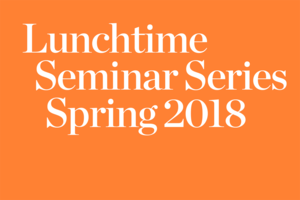Unfinished Business: Old Challenges in New Law Reform on Child Marriage
Friday, May 04, 2018 12:30p -
1:30p
Where:
Cheever House, Wellesley College
828 Washington St
Wellesley, MA 02482
Admission:
FREE
Categories:
Lectures & Conferences, Meetup, Social Good, University
Event website:
https://www.wcwonline.org/Lunchtime-Seminar/child-marriage-law-reform
“When the Kazi [Muslim marriage registrar] saw that my daughter’s age on her birth certificate said that she was 13, he refused to do the marriage,” said Fawzia K. “He took it to the [local government] chairman and got it changed to 18 and then did the marriage." The family paid 100 taka [$1.30] to the Chairman to change the birth certificate." -Testimony from the Bangladesh National Women Lawyers Association
A rash of legislation combating child marriage, and pledges by political leaders—including those of Sheikh Hasina, the prime minister of Bangladesh, and Joyce Banda, the former president of Malawi— to fight child marriage in their countries, reveal loopholes in the law that roll back the promise of law reform. This lecture, hosted by the Wellesley Centers for Women (WCW) at Wellesley College, considers recent legal revisions in Bangladesh and Zimbabwe, along with comparative perspectives of Malawi and other countries, to determine the promises and potential pitfalls of such reforms. Two important reformist initiatives have captured the attention of women and their governments in Bangladesh and Zimbabwe. In both countries, child marriage is pervasive. Bangladesh has one of the highest child marriage rates in the world and the highest rate of marriage involving girls under age 15. According to figures published by UNICEF in 2016, 52 percent of girls are married by the age of 18, and 18 percent by the age of 15. The numbers are even more troubling in rural areas, where 71 percent of girls are married before the age of 18, compared to 54 percent in urban areas. In Zimbabwe, according to UNICEF’s data, 32 percent of girls are married by the age of 18. This paper will examine the complicated definition of the “Best Interest of the Child” in Bangladesh and Zimbabwe against the backdrop of a changing legal landscape for child marriage.
Throughout her career, Rangita de Silva de Alwis, S.J.D., has worked with networks of global institutions, civil society, and government organizations to develop human rights initiatives. She is a senior scholar at WCW and was the director of international human rights policy programs there until 2012. She was the inaugural director of the Global Women’s Leadership Initiative and the Women in Public Service Project launched by Secretary Hillary Clinton and the Seven Sisters Colleges at Wellesley College, which then moved to the Woodrow Wilson International Center for Scholars. She is currently the associate dean of international affairs at University of Pennsylvania Law School where she teaches international women’s human rights law.
For those who are unable to attend in person, many programs are streamed live on facebook.com/wcwonline and the videos are archived at wcwonline.org/video.
The Lunchtime Seminar Series at the Wellesley Centers for Women is free and open to the public. Most programs are held Thursdays, 12:30 - 1:30 p.m. at the Centers’ Cheever House location, though this presentation will be held on a Friday. Guests are invited to bring their lunches, and WCW will provide tea and coffee. Contact Disability Services at Wellesley College, [email protected] for accessibility questions. Contact [email protected] for more info.
-

Sponsored -

SponsoredWBUR Earth Week Events
Wednesday, Apr 24, 2024 goes until 04/26
WBUR CitySpace at The Lavine Broadcast Center

